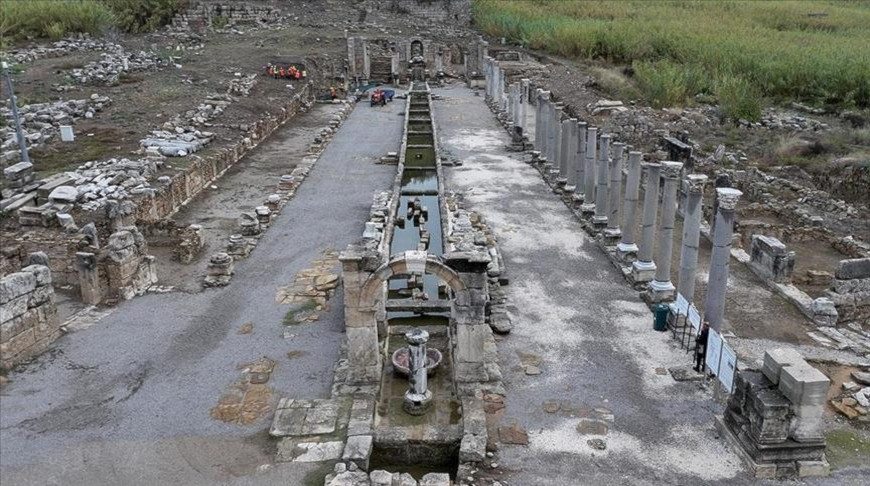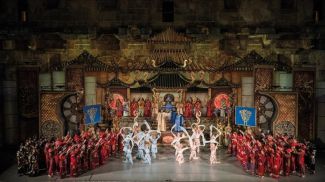
ANTALYA, 25 November (BelTA - Anadolu) - The ancient Kestros Fountain,
built in the second century under Roman Emperor Hadrian, which has been
restored to its former glory, now flows again after 1,800 years.
Restoration of the Kestros Fountain, located in Perge, a historic city near Antalya -- Türkiye’s renowned resort city, began two years ago as part of efforts to revive its grandeur.
Now, 1,800 years later, water flows again from the fountain, originally fed by the Kestros River -- modern-day Aksu stream -- via an intricate canal system.
Aytac Donmez, deputy head of Perge excavations, explained that the fountain’s water flows through a luxurious 700-meter (2,297-foot) long channel into a pool. He said only the first 100 meters have been restored, with plans for comprehensive reconstruction and conservation re.
"We aim to complete a holistic restoration and showcase this marvel entirely,” said Donmez.
The fountain, adorned with a reclining figure representing the ancient river god, Kestros, is expected to draw increased tourism, further enhancing the region’s cultural significance.
Known as one of the most organized Roman cities in Anatolia and famous for its marble sculptures, Perge was once the capital of the Pamphylia region.
Excavations at the site have been ongoing since 1946, revealing key monumental structures such as towers, a theater, a stadium, baths, and colonnaded streets.
The ancient city has been listed on UNESCO’s World Heritage Tentative List since 2009.
Restoration of the Kestros Fountain, located in Perge, a historic city near Antalya -- Türkiye’s renowned resort city, began two years ago as part of efforts to revive its grandeur.
Now, 1,800 years later, water flows again from the fountain, originally fed by the Kestros River -- modern-day Aksu stream -- via an intricate canal system.
Aytac Donmez, deputy head of Perge excavations, explained that the fountain’s water flows through a luxurious 700-meter (2,297-foot) long channel into a pool. He said only the first 100 meters have been restored, with plans for comprehensive reconstruction and conservation re.
"We aim to complete a holistic restoration and showcase this marvel entirely,” said Donmez.
The fountain, adorned with a reclining figure representing the ancient river god, Kestros, is expected to draw increased tourism, further enhancing the region’s cultural significance.
Known as one of the most organized Roman cities in Anatolia and famous for its marble sculptures, Perge was once the capital of the Pamphylia region.
Excavations at the site have been ongoing since 1946, revealing key monumental structures such as towers, a theater, a stadium, baths, and colonnaded streets.
The ancient city has been listed on UNESCO’s World Heritage Tentative List since 2009.













